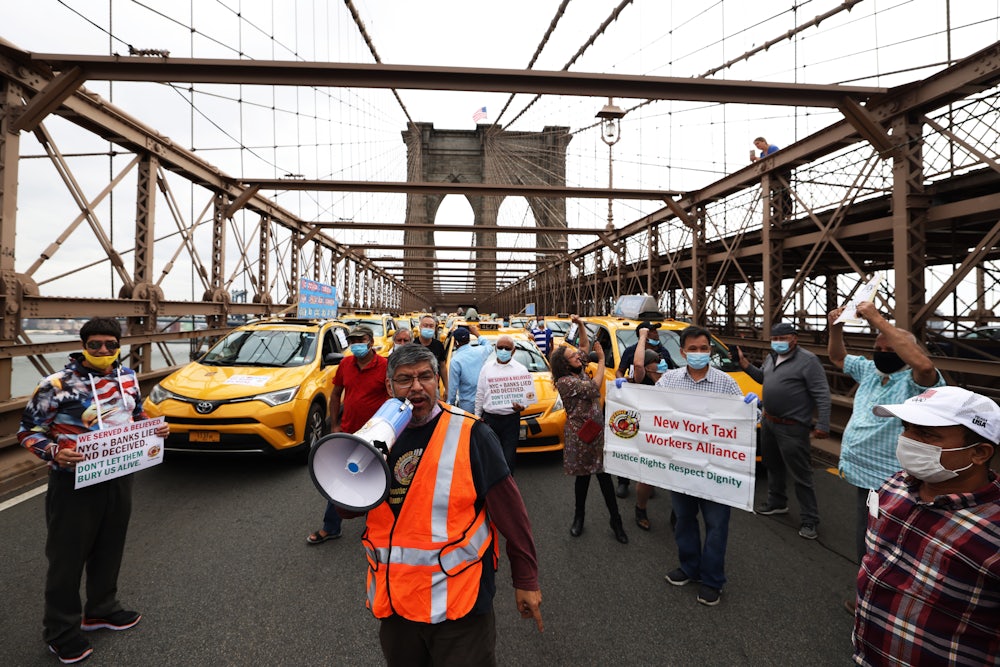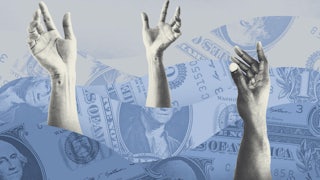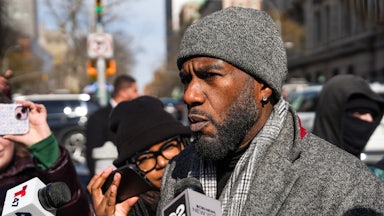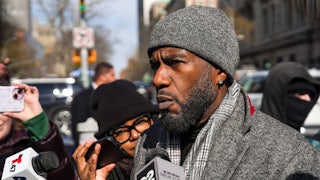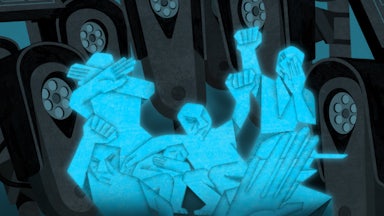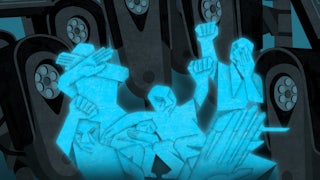On Wednesday, New York City leaders announced they had struck a deal with a group of taxi drivers, some of whom have been on a hunger strike since October 20 to protest the predatory lending practices that have saddled them with debt and created what has been referred to as “modern-day indentured servitude.” According to The New York Times, the city could spend over $100 million to eliminate the vast amount of money tax drivers owe on their medallions, the city-issued tokens that allow a driver to pick up street fares. The deal would reduce individual drivers’ debt to $170,000 and drastically lower their monthly payments, as well as provide a city-backed guarantee should a driver default on what they owe.
Through the fall, the drivers joined tens of thousands of workers agitating for better working conditions following the pandemic. But there is a particular backstory to the taxi drivers’ struggle: The cost of taxi medallions spiked dramatically and then plummeted in 2014, leaving drivers with no hope of paying off what they owed during the course of a lifetime. According to the New York Taxi Workers Alliance, the largest driver union in the city, the average driver now faces $550,000 in debt. As of 2019, more than 950 medallion owners had filed for bankruptcy. And in 2018, at least eight drivers, many facing financial hardship, died in what some called an “epidemic” of suicide among the workers.
Though city leaders most frequently blamed ride-hailing services like Uber and Lyft for the crisis, observers have noted that the network of loosely regulated lenders that backed the medallions closely resembled the conditions that led to the 2008 housing market crash. Between 2002 and 2014, the price of taxi medallions rose from around $200,000 to more than $1 million as driver wages remained flat. This artificially inflated market collapsed in 2014. Workers, many of them immigrants for whom English was a second language, were trapped in extractive deals without fully understanding the terms. As the Times found during a 2019 investigation, one worker believed he was buying a car only to find he owed $780,000 for a medallion loan; another had no idea until after he’d secured the medallion he’d signed a contract requiring him to pay $1.7 million to a private lender.
Recent protests follow a series of small measures offered by the city, though as critics point out, the city itself has profited from medallion sales for decades and declined either to regulate lending practices or bail drivers out once the market collapsed. Following the spate of drivers dying by suicide in 2018, New York City leaders weighed creating “driver assistance centers” to offer financial advice and considered developing a hardship fund, but those measures were stalled and diluted. This March, Mayor Bill de Blasio announced a plan that would have provided medallion owners with grants to help them negotiate with lenders but didn’t reduce the amount of debt or ask lenders to forgive predatory loans.
De Blasio’s plan was immediately rejected by the Taxi Workers Alliance, which represents about 20,000 drivers across the city, many of whom have been facing further hardship since the pandemic decreased their fares. Since the spring, drivers have held demonstrations that blocked bridges and, most recently, camped outside of City Hall for 43 days straight, holding signs that read, “Let drivers live” and “No more suicides, no more bankruptcies.”
The deal for debt forgiveness, which was negotiated with Marblegate, the largest holder of medallion loans, is expected to spur other lenders to act. “By going on hunger strike in front of City Hall, there was no way you could ignore what we were doing to our bodies in the service of this fight,” said Zohran Mamdani, a Queens state assemblyman who joined the taxi drivers in front of City Hall.
